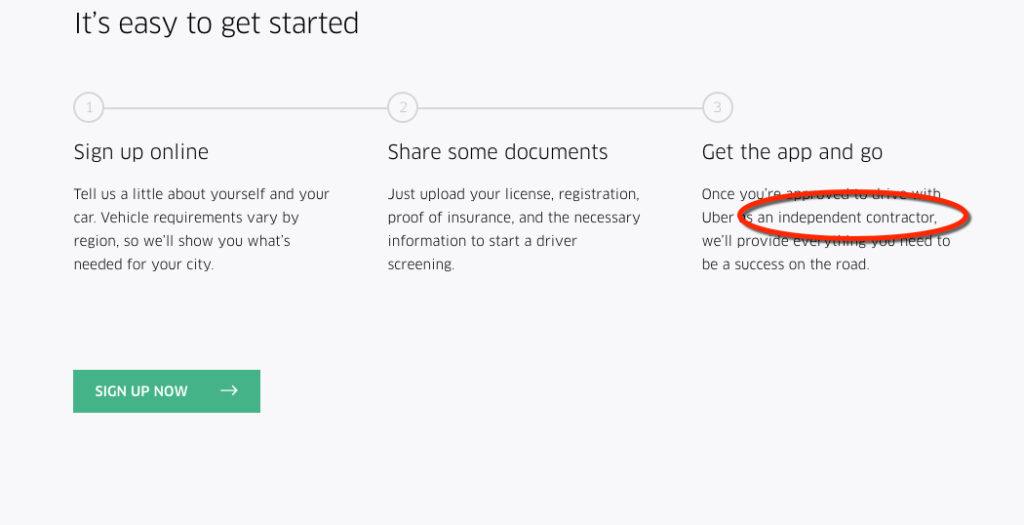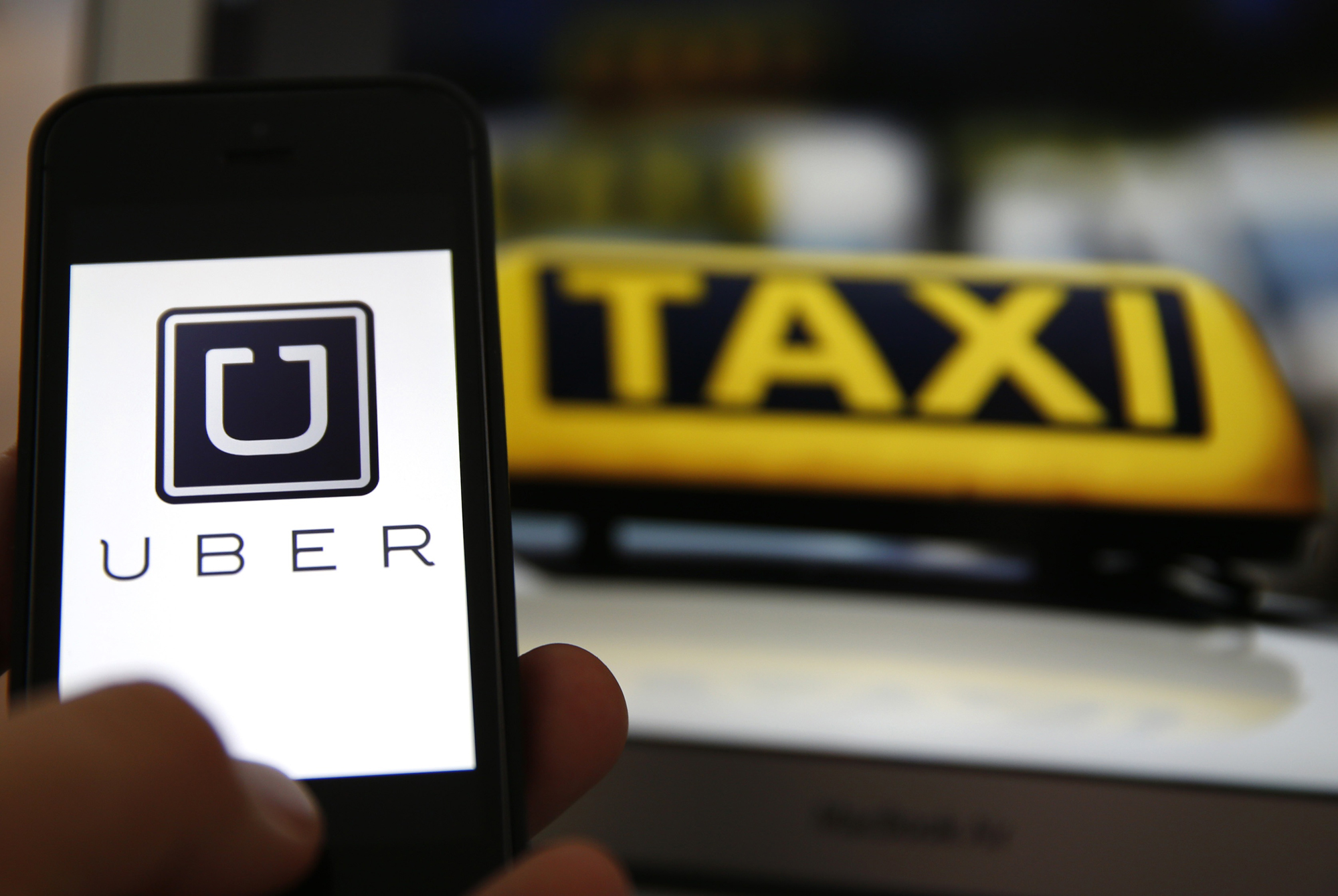In an interesting ruling last month, the U.S. Court of Appeals stated that Uber drivers must take up legal issues with the company as individuals, not as a group. The ruling is in connection with a lawsuit against Uber doing background checks on its drivers, but the implications are far greater.
Another case connected with this issue is that Uber treats its drivers as independent contractors rather than employees. And this is where the larger problem arises. In the UK, two Uber drivers have approached the London employment tribunal seeking redressal for not receiving paid holidays or sick time.
Uber, on the other hand, has always considered its 380,000 or so drivers as being “self-employed”, which means they don’t get the benefits that employees would. Even their sign up page for drivers clearly says this.

While this issue did not seem like a big deal in the past, concerns are now mounting. But the biggest concern of them all is Uber’s experiments with driverless cars. Right now it’s still at the very early stages of testing in cities like Pittsburgh, where a fleet of 100 Volvo XC90s have been deployed, albeit with a safety driver and engineer on board.
What Does This Mean for Uber Drivers?
But if Uber is able to prove that driverless cars are safe and manage to somehow swing permission to operate these vehicles ‘en masse’ in the United States and elsewhere, nearly 400,000 drivers will be out of work. That won’t happen now, but what if it happens in the next five years? That’s a lot of unemployed people who now depend on Uber for their livelihoods.
Uber Self-Driving Cars hit Pittsburgh Roads, but Drivers get Antsy
From Uber’s perspective, self-driving cars and autonomous technology means immense savings. For a company that’s just lost nearly $2 billion over a two year period in China and was ultimately forced to give up its brand there, that would certainly be a major consideration.
The issue comes down to whether Uber drivers should be given employee rights or not. In the past, Uber has given hundreds of thousands of people the opportunity to earn money in a flexible way and at their own convenience. The question is: would any other company allow its employees to work when they like? Would it be fair, then, to expect Uber to give employee benefits without the commitment of full-time employment? In fact, does it make sense for Uber to have full-time drivers rather than on-demand ones?
These are touchy questions that have strong representation on both sides of the argument so let’s not even go there. The point is that this boils down to a case of whether subsequent court decisions are made in favor of drivers rather than Uber. So far, that hasn’t been the case.
Thanks for reading our work! On Apple News please favorite the 1redDrop Channel, and please bookmark 1redDrop.com to keep tabs on the hottest, most happening tech and business news from around the world.



